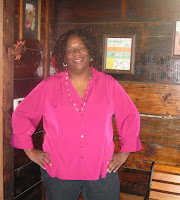Why Aren't Physicians Being Trained to Treat Diabetes
(click on article to open link and read article)
(click on article to open link and read article)
 The article "Why Aren't Physicians Being Trained to Treat Diabetes" is a code red alert for anyone with diabetes. If we can't trust health care providers to have the knowledge and skills to treat people with diabetes then who do we trust? When patients challenge me and make comments about what their doctors did or did not say or do I address their concerns and I also politely respond "you are your own best advocate". I am in no way making excuses for physicians or any health care provider to not be knowledgeable about treatment for diabetes but there is a wealth of information available for patients with diabetes, even for patients with low literary comprehensive skills. Diabetes is a multi-faceted disease and require skills beyond physician management. Learning self-care management skills is also an important aspect of diabetes care. Health care has changed and it is not always for the better so be proactive. If your physician does not know how to treat your diabetes then find another physician. Also, attend a diabetes education class every 3-5 years, attend a local diabetes conference, join the American Diabetes Association or at least access their website for free, join a diabetes support group, ASK for a referral to a dietitian and a Certified Diabetes Educator, etc., etc. In other words, don't let a physician or any health care provider be a barrier to your care because if you do, you alone may be the one to suffer the ill-fated consequences of poor diabetes control. Take care of yourself and be proactive so that you will live a long, healthy, comfortable life. Peace!
The article "Why Aren't Physicians Being Trained to Treat Diabetes" is a code red alert for anyone with diabetes. If we can't trust health care providers to have the knowledge and skills to treat people with diabetes then who do we trust? When patients challenge me and make comments about what their doctors did or did not say or do I address their concerns and I also politely respond "you are your own best advocate". I am in no way making excuses for physicians or any health care provider to not be knowledgeable about treatment for diabetes but there is a wealth of information available for patients with diabetes, even for patients with low literary comprehensive skills. Diabetes is a multi-faceted disease and require skills beyond physician management. Learning self-care management skills is also an important aspect of diabetes care. Health care has changed and it is not always for the better so be proactive. If your physician does not know how to treat your diabetes then find another physician. Also, attend a diabetes education class every 3-5 years, attend a local diabetes conference, join the American Diabetes Association or at least access their website for free, join a diabetes support group, ASK for a referral to a dietitian and a Certified Diabetes Educator, etc., etc. In other words, don't let a physician or any health care provider be a barrier to your care because if you do, you alone may be the one to suffer the ill-fated consequences of poor diabetes control. Take care of yourself and be proactive so that you will live a long, healthy, comfortable life. Peace!


